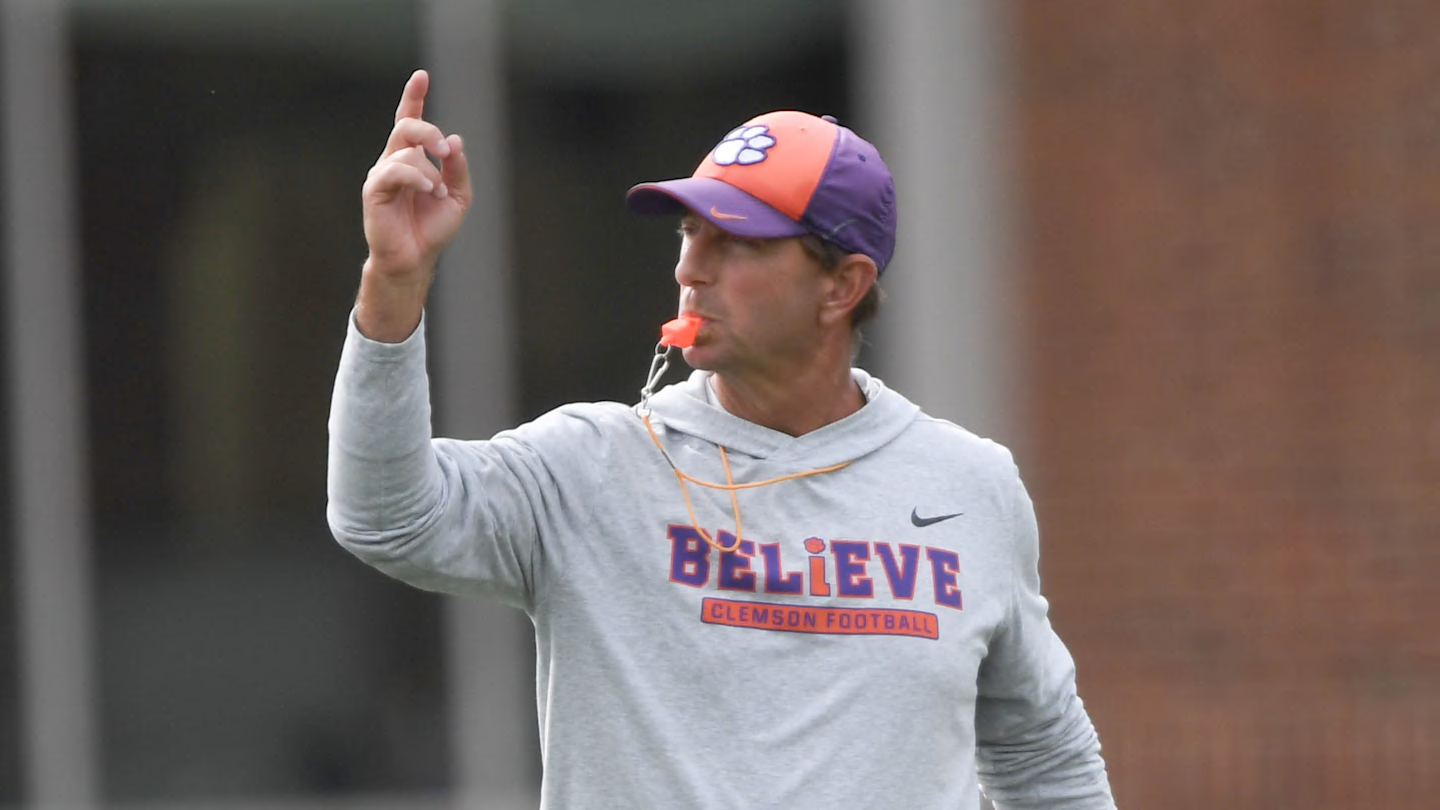From Walk-On to National Champion: The Remarkable Journey of Dabo Swinney
Few stories in college football are as inspiring as that of Dabo Swinney, whose early days as a player at the University of Alabama laid the foundation for a coaching career marked by resilience and success. While many recognize him today as the head coach of Clemson University, his playing days in Tuscaloosa are often overlooked but remain a vital part of his narrative.
Assessing the Playing Careers of College Football Coaches
Recently, ESPN undertook an ambitious project to evaluate the playing backgrounds of FBS coaches, ranking them across eight tiers based on their college football experience. The rankings aimed to highlight how much their on-field careers contributed to their coaching credentials. Notably, some coaches, like Colorado’s Deion Sanders, earned spots in the top tier, while others, such as Hugh Freeze at Auburn, did not participate in college football at all.
In Swinney’s case, he was placed in a category labeled “major college, limited production,” which includes coaches with some college playing experience but without extensive on-field accomplishments. This classification underscores that a successful coaching career does not necessarily depend on a stellar playing record.
Early Life and College Playing Days
Born and raised in Birmingham, Alabama, Swinney attended Pelham High School, where he excelled in sports. Although he had the talent to pursue college basketball, his focus shifted when he realized he could attend the University of Alabama, a powerhouse in college football. Demonstrating determination, he decided to walk on to the Crimson Tide football team, a decision that would shape his future.
In 1989, Swinney joined Alabama as a walk-on, earning a scholarship the following year. He played as a wide receiver and was part of the legendary 1992 national championship squad under head coach Gene Stallings. Despite being part of a championship-winning team, Swinney’s personal playing stats were modest-he caught only seven passes during his college career.
Transition from Player to Coach
Following his graduation in 1992, Swinney transitioned into coaching, beginning as a graduate assistant at Alabama under Stallings, who had a storied career as a player and coach under the legendary Paul ‘Bear’ Bryant. Swinney’s early coaching journey was rooted in the Tide’s program, where he served as a wide receivers coach until the end of the 2000 season.
After Alabama’s coaching staff was dismissed following the firing of head coach Mike DuBose, Swinney found himself out of coaching for over two years. During this period, he worked in commercial real estate, a stark contrast to his previous career path. His break from football ended when Clemson’s head coach Tommy Bowden offered him a position as wide receivers coach in 2003. By 2008, Swinney had been promoted to assistant head coach, signaling his rising influence within the program.
Climbing the Coaching Ladder at Clemson
When Bowden was dismissed, Clemson appointed Swinney as interim head coach-a role that quickly turned into a permanent position. Since then, Swinney has transformed Clemson into a powerhouse, amassing an impressive record of 180 wins against 47 losses, including a 12-9 record in bowl games. His tenure has been decorated with two national championships and nine Atlantic Coast Conference titles, including an unprecedented six consecutive titles from 2015 to 2020.
Under his leadership, Clemson has become a perennial contender for the national title, with quarterback Cade Klubnik leading the current squad. Swinney’s coaching prowess has been recognized multiple times, earning him the Paul ‘Bear’ Bryant Award three times as the nation’s top coach.
Legacy Beyond Playing Days
Despite his modest playing career-highlighted by only seven catches-Swinney’s coaching achievements have cemented his legacy in college football. His journey exemplifies that leadership, strategic vision, and perseverance often outweigh the importance of a stellar playing background. Today, Swinney stands as a testament to the idea that success in coaching is built on dedication and resilience, not just on-field accomplishments.

